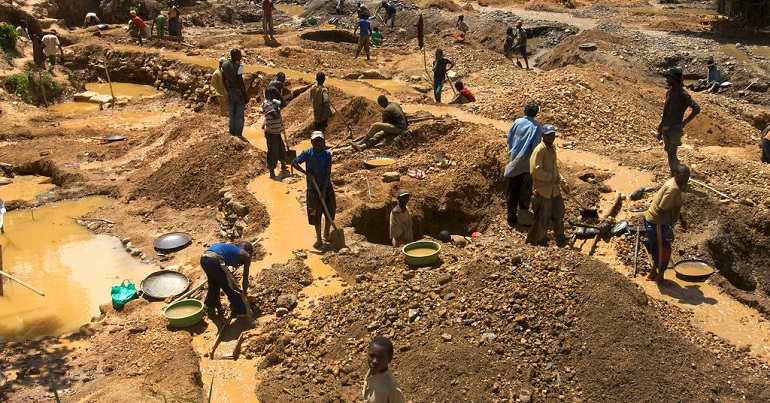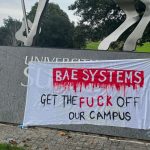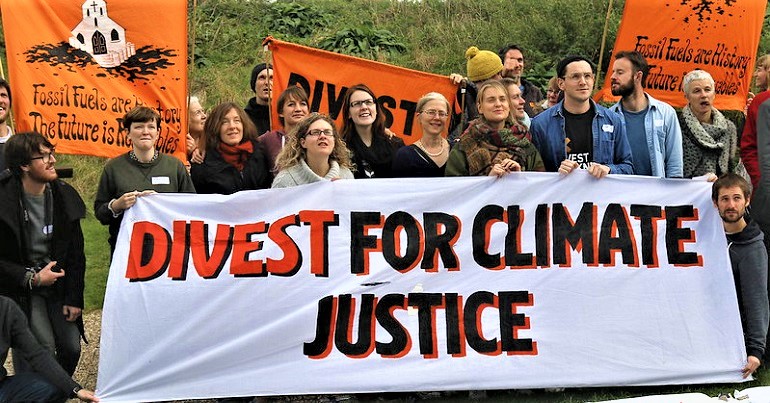Electronics and extractivism during the COVID-19 pandemic

A landmark report was published in June 2020 highlighting the ways in which the COVID-19 pandemic has impacted on communities affected by mining. The report – Voices From the Ground: How the Global Mining Industry is Profiting from the COVID-19 Pandemic – was jointly produced by Earthworks (USA), Institute for Policy Studies – Global Economy Program (USA), London Mining Network (UK), MiningWatch Canada, Terra Justa, War on Want (UK), and Yes to Life No to Mining, with input from numerous partner organisations and communities in different parts of the world. This report provides in-depth cases to exemplify the four trends highlighted in an international open letter – Global Solidarity with Communities, Indigenous Peoples and Workers at risk from Mining Pandemic Profiteers – of which People & Planet, the organisation I work for, are a signatory.
The report identifies four key trends that pose an immediate threat to the health and safety of communities and organisations that have been struggling to defend public health and their environments against the destruction and devastation of mining extractivism for decades, as well as to the safety of workers in the mining sector. These four trends are:
- Mining companies are ignoring the real threats of the pandemic and continuing to operate, using any means available
- Governments around the world are taking extraordinary measures to shut down legitimate protests and promote the mining sector
- Mining companies are using the pandemic as an opportunity to hide their dirty track records and present themselves as public-minded saviours
- Mining companies and governments are using the crisis to secure regulatory change that favours the industry at the expense of people and the planet
Many of these mines are extracting materials for use in industry, and much of that will be used in the manufacture of electronic goods. It is tempting to think of mining as solely a climate issue but many of the products we buy contain elements that came from mines with abhorrent workers and human rights records. A recent newsletter published by Afrewatch found that every single mining company surveyed in the Democratic Republic of Congo (DRC) had reduced the wages of its workers since the COVID-19 outbreak. The newsletter gives a valuable insight into the lives of artisanal miners in the DRC, with some workers having been confined to their work sites, sharing mattresses with colleagues or sleeping on the ground.
Gold mining in the pandemic
Gold is often used in electronics because of its high conductivity to electricity, making it the ideal material for headphone connections.
In Mali, the Fekola gold mine operated by B2Gold Corp is still operating despite ten workers having been infected with COVID-19, nine of whom were asymptomatic. The first infection was reported on April 16th.
In Northern Ireland, Dalradian Resources employees were filmed conducting monitoring activities on a proposed gold mining site in the Sperrins despite mining not being listed as an essential activity in the country – in clear violation of lockdown rules.
The Association of Mineworkers and Construction Union (AMCU) in South Africa has criticised the Government’s decision to exempt mining from lockdown rules, and said that the health and safety measures required for safe return were inadequate and demanded universal testing for workers. This is particularly pressing given the situation at Anglo Gold Ashanti’s 4km deep gold mine, Mponeng, where 164 workers tested positive for COVID-19. At least one mine worker is confirmed dead in South Africa.
Over 6,000 people work at the Olimpiada gold mine in Siberia, Russia, which is operated by Polyus. Here, a huge leap in reported COVID-19 infections has occurred with at least 866 confirmed cases, causing the military to set up a field hospital and quarantine the mine. The mine has continued to operate and workers are sceptical of the motives behind the quarantine: “They brought in the National Guard so that we don’t start a riot, surrounded us like in prisons with patrols everywhere”, an unidentified miner told the press.
In Mexico, labour activist Oscar Ontiveros MartÍnez was reported murdered on May 12th – it is believed his assassination was connected to his involvement in a 2017 strike at the Torex Gold mine in Guerrero. It’s believed that armed thugs are taking advantage of the lockdown to threaten, intimidate and even murder human and labour rights defenders, as the number of aggressions reported to the Mechanism for the Protection of Human Rights Defenders and Journalists has doubled.
Copper and coronavirus
A mineral often mined alongside gold is copper, which is found in almost all electronics devices because of it’s efficient electricity and heat transfer.
Australian mining company Newcrest has obtained 55,000 testing kits to be used in its copper and gold mining operations, highlighting that some private companies are acquiring tests with greater ease than some governments, and distracts from the environmental and human rights abuses the company are accused of.
The Antamina copper and zinc mine in Peru, operated by Teck Resources, has had over 200 confirmed cases of COVID-19 amongst its workforce, and was accused of a lack of care towards its workforce. Teck Resources responded in an open letter to the Canadian newspaper Globe & Mail by saying that “no positive cases existed at its operations”, a statement since proven to be false. At least one worker at the Antamina mine has died, and another 210 are infected with the Coronavirus.
In Panama, the Cobre Panama mine, operated by First Quantum Minerals, continued operations even after several members of its workforce contracted COVID-19. Despite the death of a worker on April 4th, the copper mine continued operating – on April 19th the company evacuated 800 workers from the mine site, and by April 30th 106 workers had tested positive. Five workers have died from COVID-19 at this site alone.
Iron mining continues
The strength and low cost of iron make it perfect for engineering applications, and iron compounds are used to etch copper onto printed circuit boards.
In Brazil, an announcement by Vale S.A., a company best known for its involvement in the Brumadinho tailings dam disaster in 2019, stated that they would secure 5 million COVID-19 test kits for their operations. This has been condemned by mine workers as an attempt to distract from the abuses committed by the company against the environment, local communities and their own workforce.
Also in Brazil, Anglo American continued to operate their Minas Rio iron ore mine in Conceicao do Mato Dentro, despite a local municipal decree calling for all activities to stop.
Seeking new silver mines
Another metal used in the manufacturing of electronics is silver, which is often found in cable connectors. In Guatemala, actions by Pan American Silver, who are seeking support for the large Escobal silver mine, have been condemned by the Indigenous Xinka Parliament, they said:
Pan American Silver should tell its employees to stay home and stop trying to buy support for the mine during this significant health crisis.
People are the victims
Voices From the Ground: How the Global Mining Industry is Profiting from the COVID-19 Pandemic stresses that mining operations have become key vectors for the spread of COVID-19, putting communities, local populations and their own workforces at great risk. The large volume of tests and PPE acquired by private mining companies have highlighted the glaring asymmetries of power between multinational corporations and states in the Global South at a time when entire countries are struggling to acquire these supplies. This also represents a significant corruption risk not just in affected communities, but the whole world over.
This landmark publication further highlights the need for transparency and accountability throughout the entire electronics supply chain, from mining, through transport and manufacturing, during use and finally disposal or recycling. The report concludes with a moving quote from Manuel Pérez Rocha (Institute for Policy Studies, Washington, D.C.):
The economic victims of COVID-19 will not be mining companies, but the poorest and most vulnerable workers and communities around the world.
PS. We hope you enjoyed this article. Bright Green has got big plans for the future to publish many more articles like this. You can help make that happen. Please donate to Bright Green now.
Image credit: Enough Project – Creative Commons




Leave a Reply